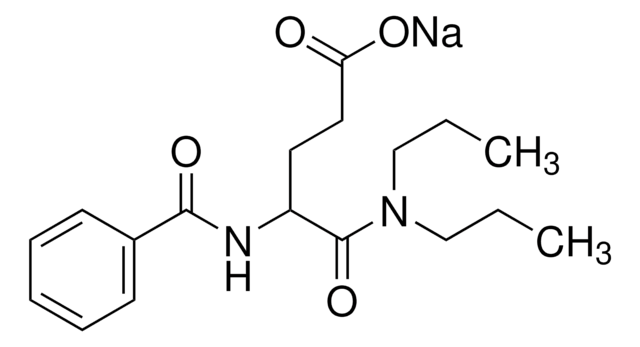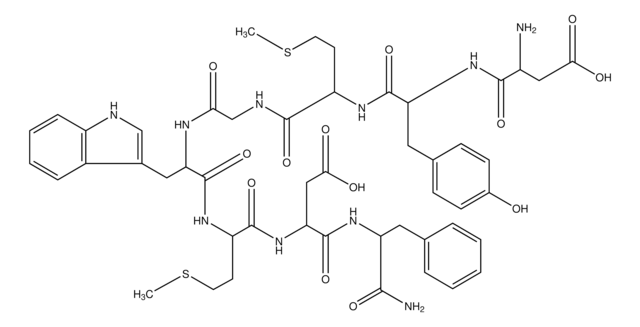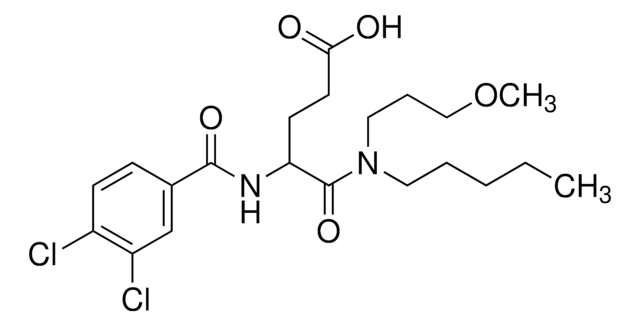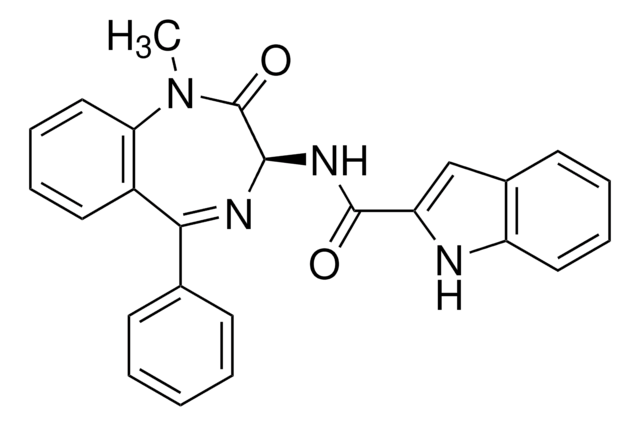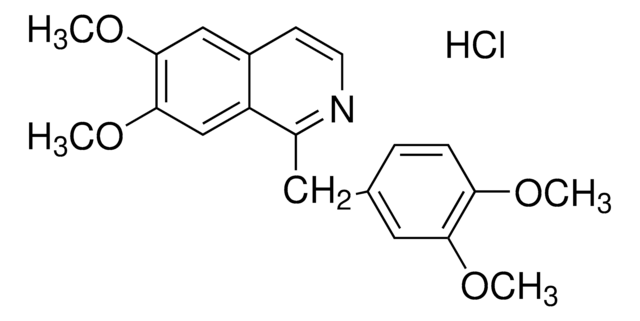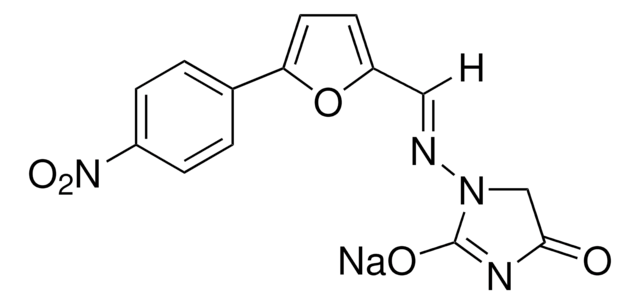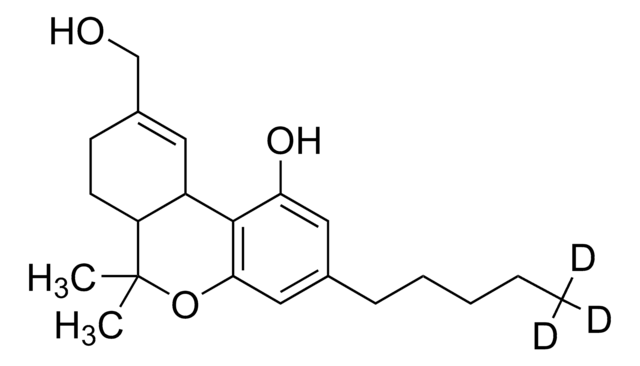L109
Lorglumide sodium salt
solid
Sinónimos:
(±)-4-[(3,4-Dichlorobenzoyl)amino]-5-(dipentylamino)-5-oxopentanoic acid sodium salt, CR 1409
About This Item
Productos recomendados
formulario
solid
Nivel de calidad
color
white
solubilidad
45% (w/v) aq 2-hydroxypropyl-β-cyclodextrin: >10 mg/mL
H2O: 10 mg/mL
methanol: 28 mg/mL
cadena SMILES
[Na+].CCCCCN(CCCCC)C(=O)C(CCC([O-])=O)NC(=O)c1ccc(Cl)c(Cl)c1
InChI
1S/C22H32Cl2N2O4.Na/c1-3-5-7-13-26(14-8-6-4-2)22(30)19(11-12-20(27)28)25-21(29)16-9-10-17(23)18(24)15-16;/h9-10,15,19H,3-8,11-14H2,1-2H3,(H,25,29)(H,27,28);/q;+1/p-1
Clave InChI
JCNPYMDDOUQTBK-UHFFFAOYSA-M
Información sobre el gen
human ... CCKAR(886)
Aplicación
Acciones bioquímicas o fisiológicas
Código de clase de almacenamiento
11 - Combustible Solids
Clase de riesgo para el agua (WGK)
WGK 2
Punto de inflamabilidad (°F)
Not applicable
Punto de inflamabilidad (°C)
Not applicable
Equipo de protección personal
Eyeshields, Gloves, type N95 (US)
Certificados de análisis (COA)
Busque Certificados de análisis (COA) introduciendo el número de lote del producto. Los números de lote se encuentran en la etiqueta del producto después de las palabras «Lot» o «Batch»
¿Ya tiene este producto?
Encuentre la documentación para los productos que ha comprado recientemente en la Biblioteca de documentos.
Nuestro equipo de científicos tiene experiencia en todas las áreas de investigación: Ciencias de la vida, Ciencia de los materiales, Síntesis química, Cromatografía, Analítica y muchas otras.
Póngase en contacto con el Servicio técnico![(Tyr[SO3H]27)Cholecystokinin fragment 26-33 Amide ≥97% (HPLC), powder](/deepweb/assets/sigmaaldrich/product/structures/125/021/32eb71ec-73e5-4cfc-94d0-ebcf5e784e39/640/32eb71ec-73e5-4cfc-94d0-ebcf5e784e39.png)
